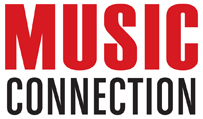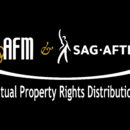
While many artists have had original songs placed on film and TV soundtracks, composing a show’s theme song is a whole ’nother discipline. In the following exclusive article, singer/songwriter––and TV theme composer––Susan Hyatt lays it all out for you.
1. First, Build Your Resume
Email your resume, with links to samples of your work, to production companies that produce TV shows. A theme song is a big placement; in the TV world it can be comparable to having a radio hit. Before you embark on pitching a theme song, build your resume with easier placements, such as background music, or local/regional commercials. You may have to license your music for free at first (you will still collect PRO royalties) and build up to earning licensing fees. Subscribe to industry trade publications like Music Connection, Hollywood Reporter, Variety; they often publish news about shows seeking songs.
2. Follow the Pitch Requirements
If a company believes in you and sends you a pitch for a show, read the pitch requirements carefully and follow the instructions. Do not take any liberties. If they want a song that sounds like Katy Perry or Daft Punk, make sure your song sounds that way. Some artists may think of this as selling out, but instead think of it as “selling in.” Since the beginning of time, composers have been commissioned by Courts and Kings to create music. If you can create great commissioned music then you are a true musician. Always remember you are in the “business of music” not just working in the music business.
3. The Show, The Stars and The Sound––Do Your Research
If you are sending your music to a production company that is creating a new TV pilot, first listen to the songs that this company has chosen before and see what the songs have in common. Is the BPM always the same? Do the songs have a specific sound? Do they have a quick shout-out chorus? Is the hook melody sustained or legato? Is there a pre-chorus or bridge? The right arrangement, lyrics, hook, beat and BPM are key to getting your song licensed. It is also helpful to get familiar with the show you are pitching and its characters.
If you are writing for a talk show, you need to think of the host as your new BFF. What kind of music do they like? Who’s their favorite recording artist? Study published interviews and write lyrics in their voice so that the host feels personally connected to your song.
4. Know Your Audience
Who will watch the show? Men? Women? What is the age range? This information will help you write the lyrics and message of your song. Most talk shows, reality shows and sitcoms use upbeat mid-tempo songs that have an uplifting message. Women mostly watch daytime talk shows, so female empowerment songs are always a good bet when pitching for them. This is the polar opposite for shows on HBO or Showtime that go for dark, edgy and artsy songs. Create a song that embodies the mood and vibe of the show without being too obvious. For example, using the word “vampire” for a show based on vampires is NOT a good idea. Great lyrics use relatable metaphors.
5. Always Start With A Title
Your song will be centered around the title and the beat. Your title can be used as a marketing tool and vehicle for the show. For title ideas, research titles of old films and books for inspiration. Take out an old-school dictionary and flip through the pages and see which words pop.
Tip: You can use titles and chord progressions from the past, but do not use melodies or “riffs” or “hooks” from other songs.
6. Make It Catchy As A Nursery Rhyme
The melody should be as catchy as a nursery rhyme—get your Mother Goose books out and review. A child should be able to sing your melody the first time they hear it. I’ve had fans tweet that their newborns wiggle their toes and smile when they hear my songs. Whoa’s and Oh’s as background vocals grab the attention of the audience when cutting in and out from commercials. A signature guitar lick or unique keyboard sound act as important sub-hooks. Shows often break down various instrumental mixes of the theme and use them throughout the show.
7. Find The Right Singer
If you are not a singer, you need to find one with the right style and sound to fit the show’s criteria. A singer with attitude, flavor and personality will be chosen over a generic session singer. The performance must be memorable.
8. Have An Agreement In Place
Make sure you have an agreement in place that states the rights and shares of the performers before you submit your song to a show. Remember the Rembrandts song “I’ll Be There For You” aka the Friends theme? Not only was this a successful TV theme song, it also became a pop hit. But guess what? The Rembrandts didn’t actually write the original song. The Rembrandts wrote additional verses and earned a piece of the writer’s share of the royalties. Smart!
9. Choose the Appropriate Performing Rights Organization (PRO)
You may have already signed up with a PRO. But here’s what you may not know. ASCAP, BMI and SESAC do not pay the same rates for all types of music royalties. They have negotiated radically different rates for radio and domestic TV performances with vocals. Make sure to choose the right organization for your specialty. You could potentially lose thousands of dollars if you have joined a PRO that pays less for what it is that you do. Terminating your PRO contract is not easy and your show could be off the air by the time you are able to switch to the better paying PRO. There are strict dates for termination and some of your catalog will not be able to follow you to your new PRO.
10. Know The Terminology: Jingles & Works Made for Hire
A “work made for hire” is a song that you have specifically written for a particular show. You get paid a fee for delivering the song to the production company, and now they own it. Owning it means they are in control of the master and they receive all the publishing royalties (50% of the total royalties). You retain your writer’s share of the royalty and will be paid by your PRO (ASCAP, BMI, SESAC) every time the show plays your song. Theme songs for talk shows are normally commissioned as works made for hire.
Radio and TV jingles are also “works made for hire.” They are the songs you hear with the product name in them and that you never hear outside of the commercial. If you are looking to get into the jingle business you need to send your work to jingle houses, or create your own music production company and connect with advertising agencies directly.
For a Directory of Film/TV Music Supervisors and 1,000s of other Industry Contacts, go to http://www.musicconnection.com
SUSAN HYATT is the singer/songwriter of “Calling All My Girls,” the theme song for Bethenny on FOX TV. Hyatt‘s cover of Olivia Newton-John’s “Magic” was the theme song for Macy’s “Find Your Magic” national TV and radio ads. She has coached artists Gina Gershon, international superstar Dev (“Like a G6”) and Youngblood Hawke (“We Come Running”). Hyatt’s current band debut album, Sirens of Soho, is on Telepictures Music (Warner Bros.). She is the author of the upcoming book Never Mind The Rules - How To Rock at Love. For songwriting and vocal coaching, visit http://susanhyatt.net or email [email protected].









